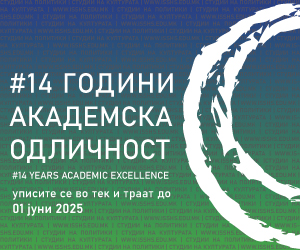The four parties – signatory to the Przino Agreement, SDSM, VMRO-DPMNE, DUI and DPA, promised also at the meeting with EU Commissioner Johannes Hahn that they are prepared and agree with the decision to hold the voting for these early parliamentary elections on December 11, which is to put an end to the political crisis in which Macedonia has been sinking for a long time. In addition to the official conclusion of the parties that conditions for elections have been fulfilled, today at a parliamentary session the MP’s are to bring a decision on the dissolution of the Parliament, as a first official step for the start of the election process.
Will MPs in power vote for dissolution of Parliament?
The Parliament is to be dissolved at today’s session, at the initiative of SDSM, which on October 12 was supported by VMRO-DPMNE, with the condition for the Budget for 2017 to be previously adopted. However, the opposition considers that the budget should be passed by the new government, after the elections.
Today, MPs are also to pass the laws on the extension of the work of the Special Prosecutor’s Office (SPO) and on witness protection in court proceedings, which result from the criminal acts in the “Wiretapping” affair. Special Public Prosecutor Katica Janeva hopes that the laws will be passed. At the meeting with EU Commissioner Hahn, she spoke about all the challenges the SPO is facing in its work.


The issue with the surplus of voters in the Sixth electoral unit, which the Ministry of Justice kept silent, will also be debated at the session. Each of the six electoral units are supposed to have roughly the same number of registered voters, with tolerance of five percent. However, the situation on the ground is different. In the “sixth” one, there are 5.28 percent more voters than allowed. The State Election Commission (SEC) warned of this for quite some time, and even submitted an official request to Parliament and the Ministry of Justice. But, nobody responded.


Macedonia under the EU magnifying glass
EU Commissioner Hahn stated that the EU continues to closely monitor the process until the elections. For the EU, the elections are very important for returning Macedonia back on the Euro-Atlantic path. However, just as important are also the urgent reform priorities from Priebe’s Report. According to Hahn, it is vital for elections to be held in a way in which, after their completion, no one will have objections to the legality and regularity. He expressed assurance that the work of the Special Prosecutor and her team will be supported.
EU diplomats: Richard Howitt, Eduard Kukan and Ivo Vajgl, at the meeting with representatives of Macedonian civil society organizations in Brussels, said that the elections on December 11 will be held. The fact that some political parties have still not started to prepare for a political campaign, according to Vajgl, just means that they will lose at the elections. He recommended that some of the politicians in Macedonia– “should find good lawyers”! According to the EU diplomats, if certain parties have decided not to activate themselves during the pre-election period, it is their right, and that this will in no way affect the date scheduled for elections.


Civil society sector seeks EU assistance
In anticipation of the final decision on whether elections will be held on December 11, civil society organizations raised their tone at the meeting with EU Commissioner Hahn, but in mutual criticism. The Macedonian Association of Journalists (MAJ) accused that the SPO is a tool of the political agenda of SDSM and of the opposition leader Zoran Zaev. The Helsinki Committee for Human Rights reacted to this with an accusation that those who criticize are, in fact, part of the recorded conversations that the opposition released, and in regards to the elections. The NGO sector demanded an independent judicial department that would work on processing the cases of the SPO, but prior to that, dissolution and re-election of the Court Council, so as to ensure impartiality. Civil society organizations demand for the EU to directly locate the responsibility, and for them to be involved in the process of monitoring, negotiating and evaluating, should there be further negotiations.
Gruevski mobilizes administration with an order
On the national holiday of October 11, the Macedonian pro-democracy public, at the initiative of the leader of the oppositional SDSM, Zaev held a civil march in Skopje. Tens of thousands of citizens arrived from throughout Macedonia by buses. Prominent citizen activists sent messages to the international community that this Government should be changed at elections, in order to put an end to the political crisis in Macedonia, but also for opening a new page for a democratic and prosperous Macedonia.


On October 16, also by buses, but with an order and based on prepared lists, employees from the state administration, health care, education, and municipalities, started coming from all over Macedonia…in order to hear the speech of the leader of the ruling VMRO-DPMNE, former Prime Minister Nikola Gruevski, at the party meeting. In a one-hour speech, he promised an election victory, while directing threats and insults towards those who are not like-minded.
Моnika Taleska




